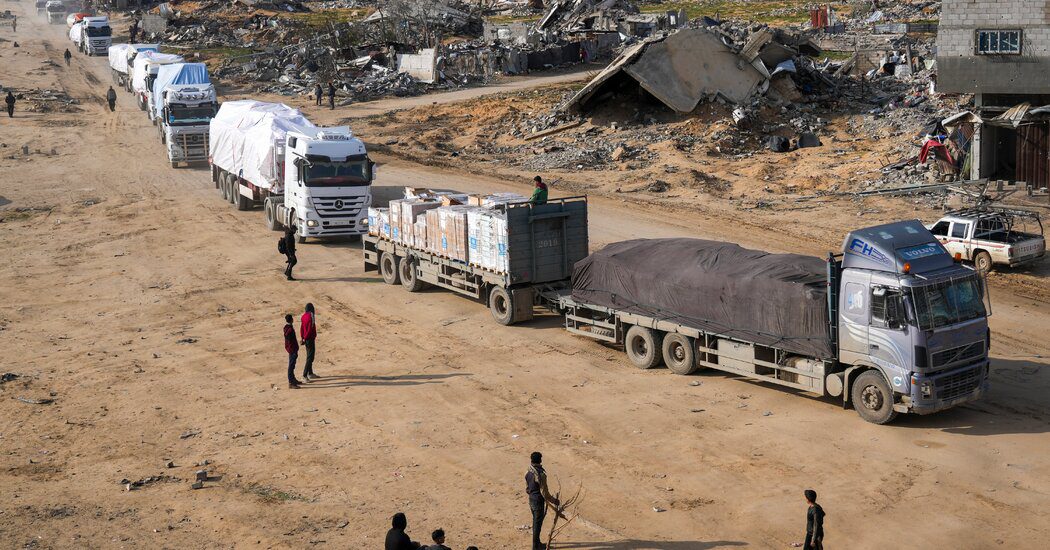

Amid the unpredictable political landscape shaped by President Trump, both Jordan and Egypt are urgently working to deter his proposal to resettle Palestinians from the Gaza Strip, though they face uncertain outcomes. The two Arab nations perceive Trump’s suggestion of accepting two million Palestinians as an existential threat. To navigate this challenge, their strategy seems aimed at placating the U.S. leader by promising to partner in efforts to rebuild Gaza, promote regional peace, and enhance humanitarian assistance. Analysts suggest that this approach might buy them some time, possibly enough for Trump to abandon the idea, viewing it as overly complex or recognizing the potential risks to the United States’ close allies in the region.
During a recent meeting at the White House, King Abdullah of Jordan adopted a diplomatic tone, stating that his nation would accept 2,000 Palestinian children suffering from cancer and other illnesses from Gaza. However, he did not yield on the broader issue of relocating more Palestinians and reiterated Jordan’s refusal of the plan through a social media statement.
Jordan has already been providing treatment for some cancer patients from Gaza for months, making the offer more symbolic than a genuine concession. Nonetheless, Trump characterized it as a “beautiful gesture.”
Other global leaders have discovered that praising Trump can sometimes lead to favorable outcomes. On Tuesday, King Abdullah seemed to mirror this tactic, commending the president as someone capable of guiding the region toward stability, peace, and prosperity.
While the king pushed back against Trump’s proposal, emphasizing the rejection of the mass displacement of Palestinians, he acknowledged the critical role of the United States in achieving lasting peace. “A fair resolution based on a two-state approach is essential for regional stability,” he stated, highlighting the necessity for U.S. leadership in this endeavor.








